NUAKHAI!
Nuakhai festival is a symbol of Sambalpuri culture and it reminds people of the Odisha the importance of agriculture in one’s life.
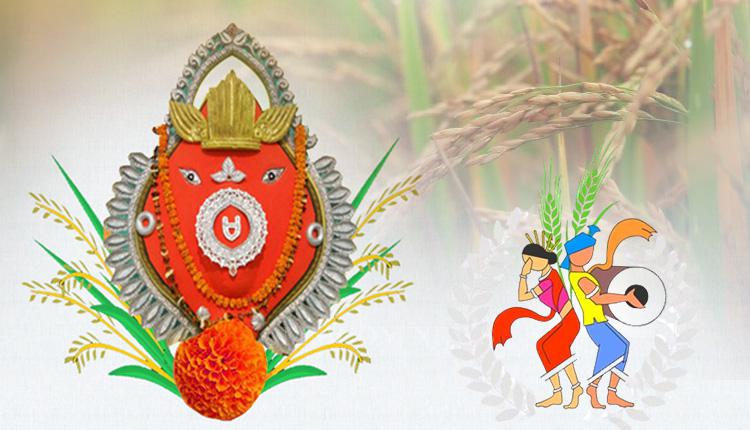
Nuakhai is observed on panchami tithi of the lunar fortnight of the month of Bhadrapada (August–September), the day after the Ganesh Chaturthi festival. This is the most important social festival of Western Odisha and adjoining areas of Simdegain Jharkhand, where Odia culture is prevalent.
Traditional Sambalpuri dance forms like Dalkhai, Sajani, Rasarkeli, and Maelajada, Nachnia, Chutku Chuta and arisa pitha alongwith other delicacies mark the nuakhai festivities.
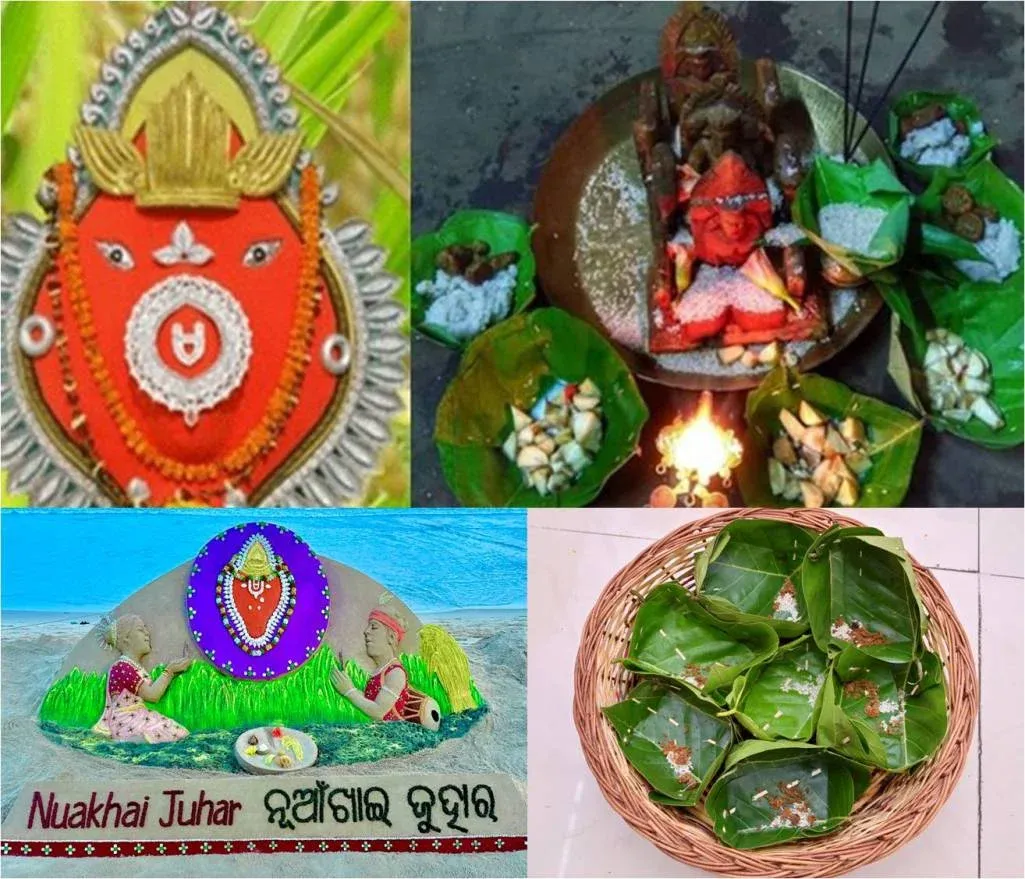
It marks the gratitude for a bumper rice crop and rain which in itself is a symbolic manifestation of life.
Although the origin of the festival has been lost over time, oral tradition dates its back to the 14th century AD, the time of the first Chauhan King Ramai Deva, founder of Patnagarh ,which is currently part of Balangir district in Western Odisha. In his efforts to build an independent kingdom, Raja Ramai Deo realized the significance of settled agriculture because the subsistence economy of the people in the area was primarily based on hunting and food gathering.Nuakhai as a ritualistic festival played a major role in promoting agriculture as a way of life.
In ancient times, farmers would celebrate Nuakhai on a day designated by the village headman and priest.later on with the patronage of royal families, this simple festival was altered into a mass socio-religious event celebrated in the entire Kosal region.
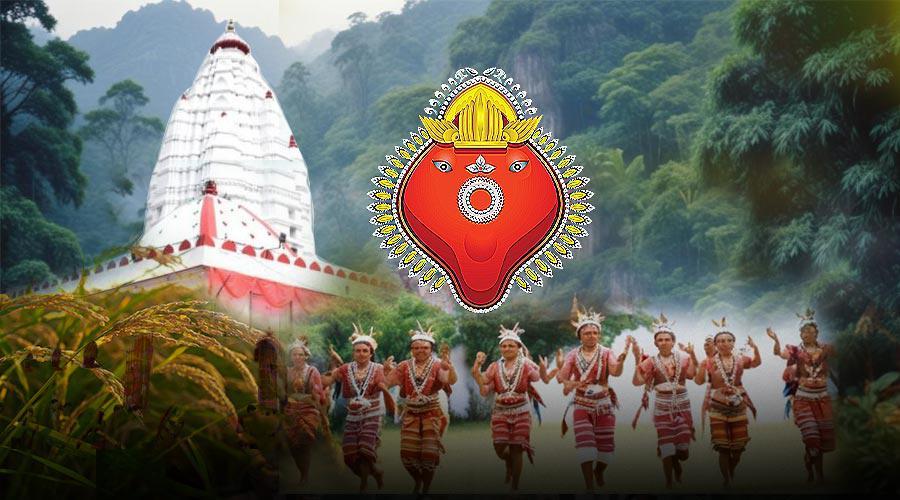
Every year, the day and time of observance was astrologically determined by the Hindu priests of the Brahmapura Jagannath temple in Sambalpur,calculate the tithi and lagna in the name of Pataneswari Devi in the Balangir-Patnagarh area, in the name of Sureswari Devi in the Subarnapur area, and in the name of Manikeswari Devi in the Kalahandi area.
In Sundargarh, Puja was first offered by the royal family to the goddess Sekharbasini in the temple which is opened only for Nuakhai.
In Sambalpur, at the time of auspicious lagna the head priest of Samaleswari Temple offers the nua-anna or nabanna to the goddess Samaleswari, the presiding deity of Sambalpur .
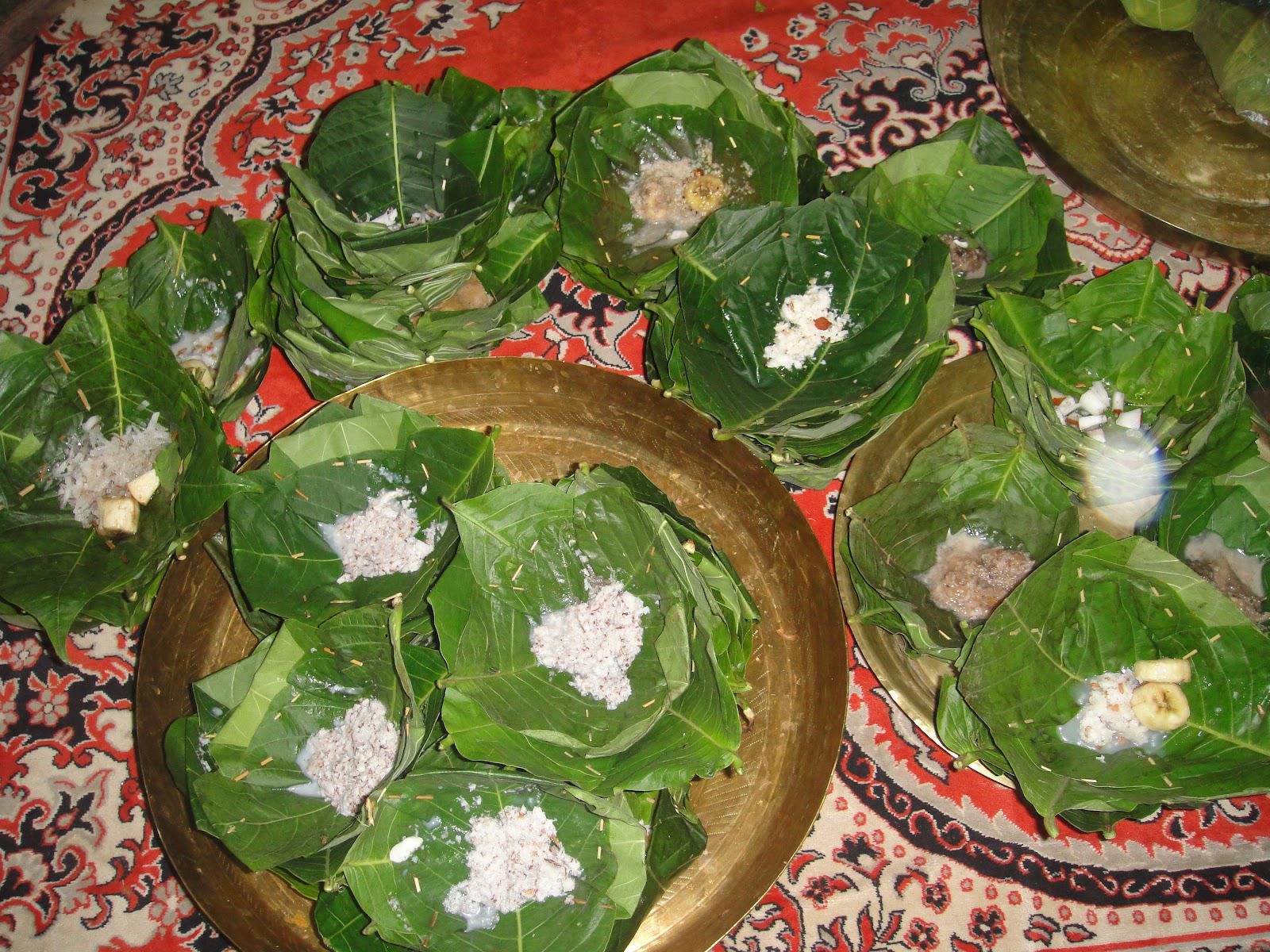
Nuakhai festival has nine colours so nine sets of rituals are followed as a prelude to the actual day of celebration. These nine colours include:
Beheren (announcement of a meeting to set the date)
Lagna dekha (setting the exact date for partaking of new rice)
Daka haka (invitation)
Sapha sutura and lipa puchha (cleanliness)
Ghina bika (purchasing)
Nua dhan khuja (looking for the new crop)
Bali paka (final resolve for Nuakhai by taking the Prasad (the offering) to the deity)
Nuakhai (eating the new crop as Prasad after offering it to the deity, followed by dancing and singing)
Juhar bhet (respect to elders & gift transfers)
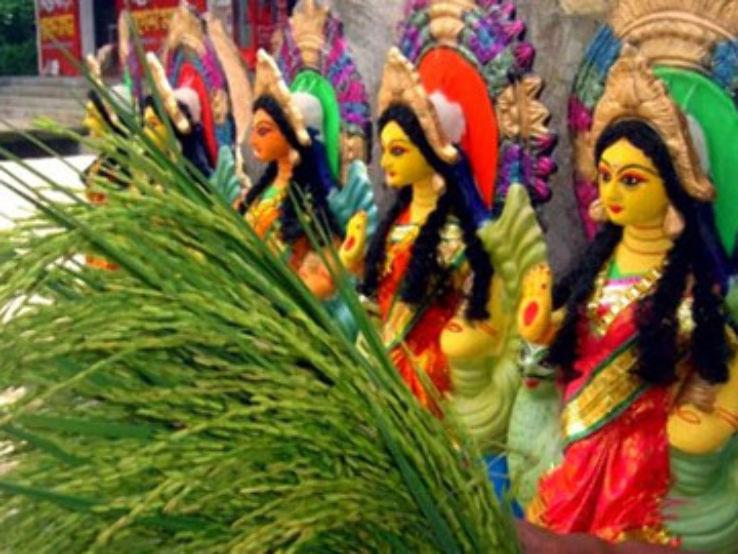
Nuakhai is celebrated both at the community and domestic level. The rituals are first observed at the temple of the reigning deity of the area. Afterward, the people worship in their respective homes and offer rituals to their deity and to Goddess Lakshmi. People wear new clothes for the occasion, eat together and sort out their differences.
Folk songs and dances are organized showcasing the local culture, tradition and with people form the Western Odisha staying in different parts of the country, a nuakhai bhetghat of folk culture, songs and traditions take place.
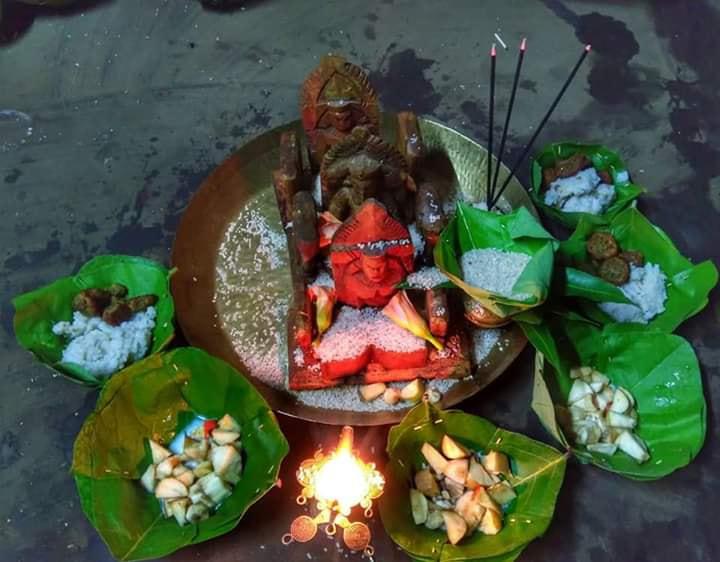
The day following Nuakhai is called Basi. In Oriya,Basi means old. While the Nuakhai is a day to observe satwik food, Basi is celebrated with much tamasvic fanfare & nonvegetarian delicacies.
The main objective of this agrarian festival is to get social sanction for the new crop, and to invoke the deities to bless the land with abundant crops.
karuwakispeaks wishes everyone a very auspicious Nuakhai juhar & prosperity.
Comments (2)

